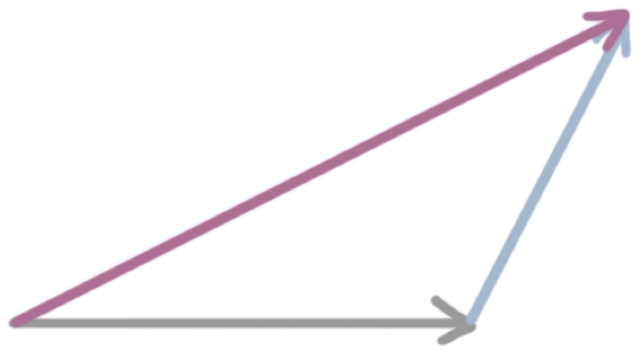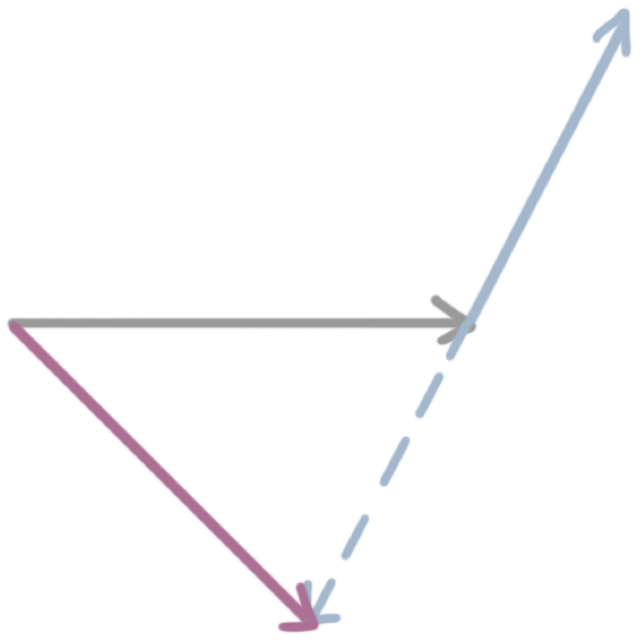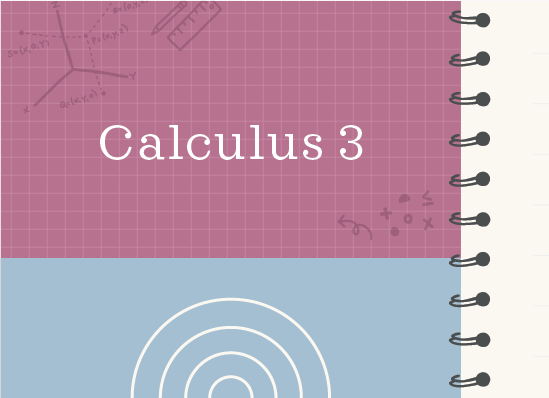Finding the sum of two vectors
What does it mean to find the sum of two vectors?
When we want to find the combination of two vectors, we take just match up the initial point of the second vector with the terminal point of the first vector, and then we draw a new third vector from the initial point of the first to the terminal point of the second.
Hi! I'm krista.
I create online courses to help you rock your math class. Read more.
In other words, the combination of gray and blue is purple:
Essentially, combining two vectors gives us the same result as adding the vectors. In the example above, gray + blue = purple. We can also subtract vectors. If a vector is being subtracted, we move in exactly the opposite direction of the original vector. In the example below, gray - blue = purple. The solid blue vector is the original vector, but since we’re subtracting, we move in the opposite direction.
When we’re given numerical values for the vectors, we’ll just sum the ???x???-coordinates to get a new ???x???-coordinate, and sum the ???y???-coordinates to get a new ???y???-coordinate.
How to find the sum of vectors, including when vectors are given in different forms
Take the course
Want to learn more about Calculus 3? I have a step-by-step course for that. :)
Two more examples of summing up vectors
Example
Find the sum of the vectors.
???u=\langle2,1\rangle??? and ???v=\langle-1,5\rangle???
???u=2i-3j??? and ???v=6i+2j???
For ???u=\langle2,1\rangle??? and ???v=\langle-1,5\rangle???:
To sum the vectors ???u=\langle2,1\rangle??? and ???v=\langle-1,5\rangle???, we just sum the ???x???-coordinates to get a new ???x???-coordinate, and then we do the same for the ???y???-coordinates. We can call our new vector ???w???.
???w=\langle2+(-1),1+5\rangle???
???w=\langle1,6\rangle???
Essentially, combining two vectors gives us the same result as adding the vectors.
For ???u=2i-3j??? and ???v=6i+2j???:
To sum the vectors ???u=2i-3j??? and ???v=6i+2j???, we’ll take the coefficients from our ???i??? and ???j??? terms, and add them together to find the coefficients on these terms for the vector ???w???.
???w=(2+6)i+(-3+2)j???
???w=8i-j???
We could also write the vector ???w=\langle8,-1\rangle???.








